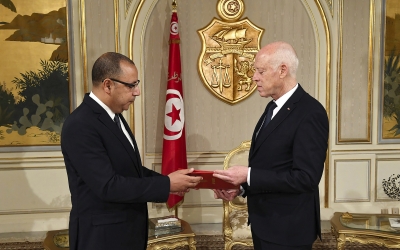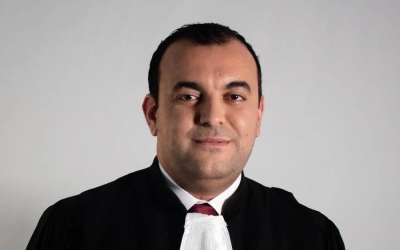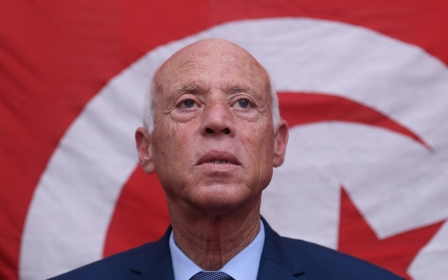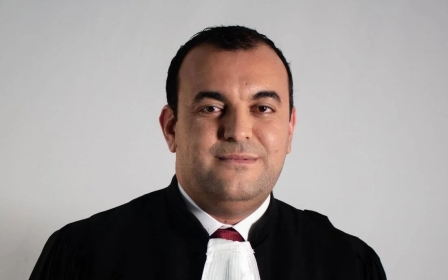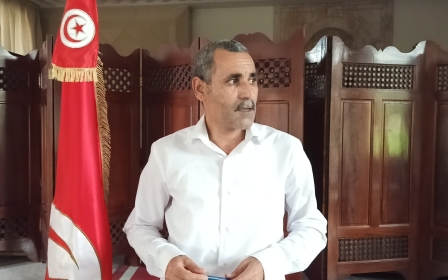Tunisia coup: Demands grow for whereabouts of prime minister
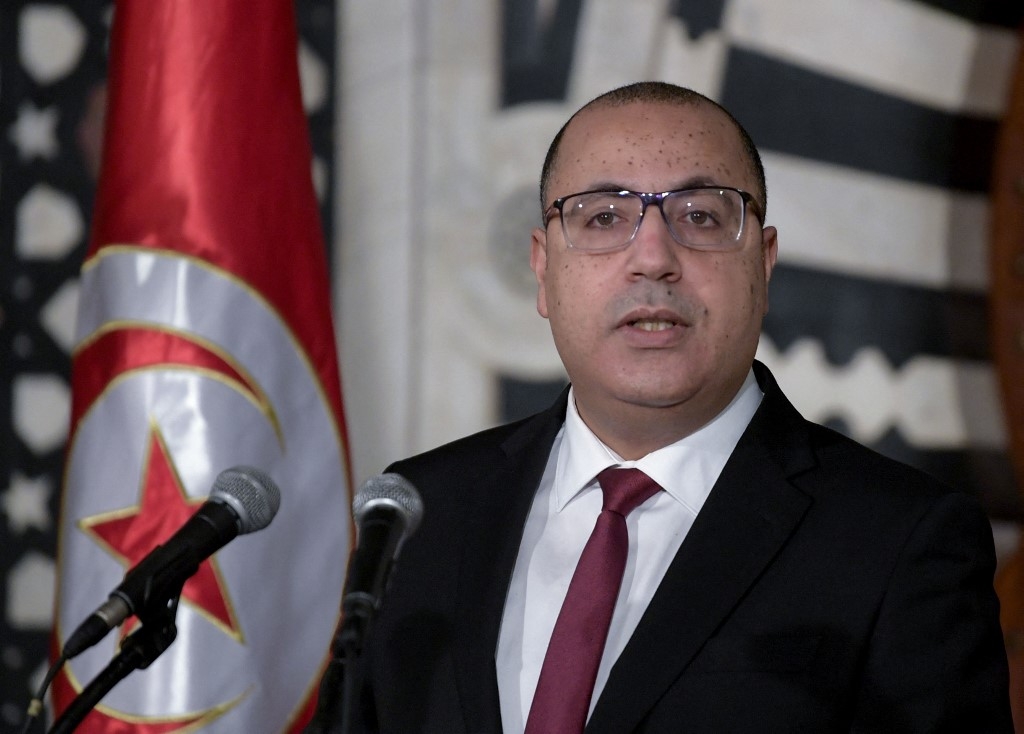
Tunisian human rights advocates have expressed concerns about the disappearance of the deposed prime minister Hichem Mechichi, whose whereabouts remain unknown nearly ten days after President Kais Saied staged what opponents have labelled a "constitutional coup".
Mechichi has not appeared in public since Saied’s announcement of the power grab on Sunday 25 July. His last Facebook post was on 26 July when he published his resignation statement.
His only other public comments were in response to a Middle East Eye (MEE) report last week that revealed that he was physically assaulted the night before he agreed to resign.
The Maghreb Street newspaper reported Mechichi's denial that he was forced to resign.
Middle East Eye stands by its report. MEE contacted Mechichi and the Tunisian presidency for comment before it published its story, but did not receive a response by the time of publication.
MEE reported that Mechichi was summoned to the presidential palace on 25 July where Saied sacked him, announced the suspension of parliament, and assumed executive authority after anti-government protests.
Once at the palace, Mechichi repeatedly refused to quit, according to MEE sources. He was then beaten.
"I am absolutely concerned about his security. All efforts to get in touch with him have failed," Osama al-Saghir, a Tunisian MP with the Ennahda Party told MEE.
"All we have is a message on Facebook saying he [Mechichi] is stepping down. It is one more confirmation that what is going on in this country is very dangerous," he added.
While the nature of Mechichi’s injuries could not be verified, as he has not been seen in public, they were "significant", according to sources with knowledge of the matter.
Mechichi then agreed to resign, the sources said, before returning home, where he denied reports to local media that he was under house arrest.
'Where is Mechichi?'
On Wednesday, Anwar al-Gharbi, a member of the International Jurists Union (IJU) told the Arabi21 news website that his organisation had been trying for five days to obtain information about Mechichi’s whereabouts, to no avail.
“The situation of Mechichi has become worrying,” Gharbi said. “First of all he is a citizen before being a government official, and no one knows his whereabouts. We are keen on ensuring he is physically and psychologically well.”
"He is not at home. Everyone we contacted has no information about him, including his family and relatives, and even those who worked with him," Gharbi said.
Later on Wednesday, the National Commission for the Prevention of Torture, an independent oversight authority elected by parliament, said that it is investigating Mechichi’s case on suspicion that he has been mistreated or detained.
In a statement, the commission said it has failed to reach Mechichi since 26 July.
"The authority has approached some people close to the concerned person. It has also contacted him personally on his mobile phone, and was assured that it was in use, and sent a text message to him on the same phone, expressing its readiness to visit him if he wanted to, but did not receive a response to that, neither accepting nor rejecting," the statement said.
The commission also said it was not aware of any judicial or administrative decision to place the former prime minister under house arrest, or to prevent him from traveling, or to prevent his visit by others.
It called on the public to provide any information deemed useful to the commission to help with the course of the investigation.
Meanwhile, the hashtag “Where is Mechichi” has been widely used by Tunisian social media users demanding to know the missing politician’s whereabouts.
Tunisia's transition to democracy is viewed as the sole success story of the 2011 Arab Spring uprisings, many of which were violently put down or became civil wars.
Saied insists that his power grab is not meant to derail Tunisia from its democratic path. But his moves were followed by a crackdown on critics, including a raid of Al Jazeera's offices in Tunis and the issuing of arrest warrants against several lawmakers and legal advocates.
Authorities have also opened probes against the country's two largest parties, Ennahda and Heart of Tunisia, based on allegations that they received foreign funds during the 2019 election campaign.
This article is available in French on Middle East Eye French edition.
Middle East Eye delivers independent and unrivalled coverage and analysis of the Middle East, North Africa and beyond. To learn more about republishing this content and the associated fees, please fill out this form. More about MEE can be found here.


